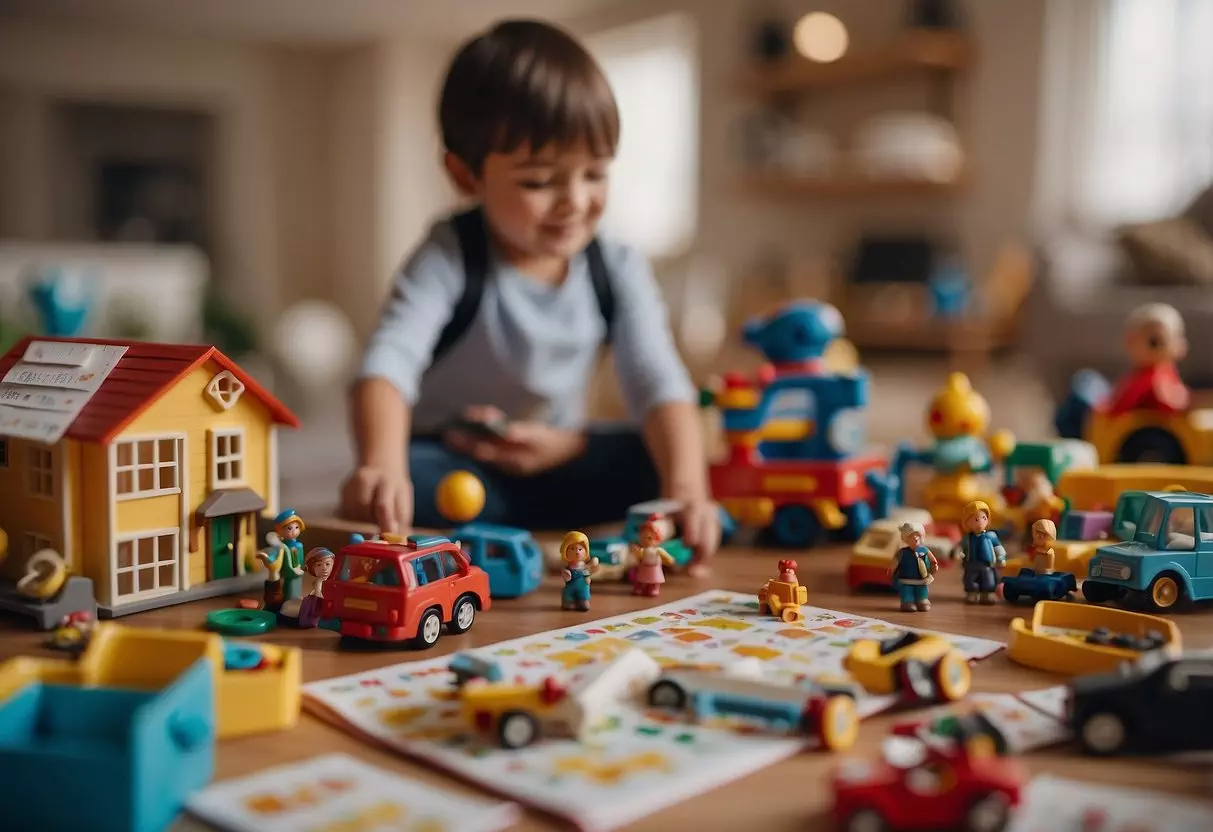Does Having Kids Age You? Exploring the Impact on Your Health
Becoming a parent is a life-changing experience filled with joy and challenges. You might have heard that having kids can make you age faster, and some studies support this idea. Researchers have found that having children can affect your cellular aging, sometimes even more than smoking or being overweight.

Raising children might speed up the aging process at a biological level, which can be surprising. The number of times a person gives birth also plays a role. Studies show that each pregnancy can add to the biological toll on your body, making you age faster.
But it’s not just about biological changes. Parenthood brings deep meaning and fulfillment that can positively impact your life. Even though there might be some physical downsides, the emotional and psychological rewards of parenthood often outweigh the risks.
Table of Contents
The Biological Impact of Parenthood
Being a parent can affect your body in multiple ways. These changes range from shifts in cellular aging during pregnancy to fertility concerns as you grow older, and even the health outcomes for your children.
Effects of Pregnancy and Childbirth on the Body
During pregnancy, your body’s cells can age up to two years faster. This accelerated aging happens due to stress, lack of sleep, and the physical demands of carrying a baby. You might experience conditions like gestational diabetes, preeclampsia, and high blood pressure. All these changes put extra strain on your body.
Childbirth itself can also be taxing. The recovery process may include healing from tears or surgical cuts if you had a C-section. The hormonal changes don’t stop after birth, as adjusting to postpartum life brings new challenges. It’s normal to face postpartum depression or anxiety during this period.
Age-Related Fertility Changes
As you age, your fertility naturally declines. This decline begins slowly in your late 20s but speeds up after age 35. This means that the number and quality of your eggs decrease.
With age, the risk of conditions like endometriosis and fibroids increases, making conception harder. By the time you reach menopause, your ovulation stops entirely. Older mothers may have higher chances of miscarriage, chromosomal abnormalities, and complications like premature birth or low birth weight.
Parental Age and Child Health Outcomes
Your age when you have children can also impact their health. Younger parents, especially those in their teens, are more likely to experience higher rates of depression and face financial and social pressures that can affect child-rearing.
Conversely, older parents might deal with issues like increased risks of chromosomal abnormalities such as Down syndrome in their babies. Their children might also have higher chances of being born prematurely or with low birth weight.
Various studies suggest that children of older parents could face different developmental challenges, yet they might also benefit from the emotional and financial stability that often comes with older parenthood.
Lifestyle and Environmental Factors

Your everyday habits and surroundings can play a huge role in how having kids impacts your health and aging. From what you eat and how you exercise to your levels of stress and mental health, every part of your lifestyle contributes.
The Role of Diet and Exercise
Maintaining a healthy diet is key to having more energy. Eating plenty of fruits, vegetables, lean proteins, and whole grains helps you avoid conditions like obesity, diabetes, and high blood pressure.
Regular exercise also plays an important role. Even just 30 minutes of physical activity a day can do wonders for your metabolism and cardiovascular health. It helps regulate your blood pressure and reduces the risk of hypertension. This can keep you feeling younger and more energetic.
A balanced diet and consistent exercise routine are critical. They help you stay strong and manage the physical demands of parenting, making you feel less worn out.
Impact of Stress and Mental Health
Stress levels can skyrocket when you have kids. The constant worry and lack of sleep can lead to higher blood pressure and even anxiety or depression. High stress can negatively impact your overall health, making you feel older than you are.
Good mental health practices are crucial. Activities like mindfulness, meditation, and even talking to someone can help reduce stress. This can lower the chances of developing mental health issues and improve your well-being.
Monitoring and managing stress helps keep your mind and body in better shape. It prevents long-term health issues, making it easier to enjoy parenthood without feeling aged.
Societal and Personal Considerations

Deciding to have children can impact many aspects of life, including career progression and the approaches to raising kids. Understanding these factors can help you make an informed choice.
Career and Education
Having children often affects your career and education plans. Many parents pause or slow down their career advancements to meet the demands of raising kids. Women in their 30s and 40s, in particular, face challenges balancing work with family life. Some opt for egg freezing or donor eggs to give them flexibility in deciding the timing of their pregnancy without impacting their career too much.
Advanced Parenting Techniques can also require significant resources and time, making it harder to juggle both a demanding career and effective parenting. The Centers for Disease Control and Prevention suggest that older parents may face higher pregnancy risks but also bring maturity and stability to parenting. Knowing these trade-offs can help you plan your career path and education around parenthood.
Advanced Parenting Techniques
Raising children today often involves advanced parenting techniques, including preconception visits and utilizing scientific reports for effective parenting strategies. These techniques aim to support the child’s health and development from an early age. Older parents may benefit from such approaches, ensuring they keep up with the latest in childcare despite potential infertility or complications due to age.
You might also consider methods like in vitro fertilization if facing infertility, which has become a viable option for many older parents. Preparing through updated parenting practices and medical interventions can help create a balanced and nurturing environment for children.
Long-Term Perspectives on Parenting

When you have kids, it impacts various aspects of your life, including your health and your relationship with them. Understanding the connection between your age and parenting can help you navigate these changes more effectively.
Child Development and Parental Guidance
As a parent, your role in your child’s development cannot be overstated. The way you respond to your child’s needs, such as feeding and soothing them, helps form a strong attachment. This bond is vital for a healthy parent-child relationship.
Older parents may have more experience and emotional maturity, which can positively influence their children. However, advanced maternal age can come with health risks like cesarean delivery. You might face unique challenges, but your guidance helps shape your child’s future.
Being mindful of your children’s developmental stages is key. Supporting them with love and appropriate guidance helps them grow into well-adjusted individuals. It’s crucial to stay informed and adapt your parenting style to meet their needs.
Psychological and Emotional Aspects of Aging with Children
Raising children can be emotionally rewarding yet challenging. Parents, especially those who have children at an older age, might experience heightened stress and fatigue. You may worry about keeping up with the energy levels and needs of younger kids.
Studies show that early parenthood may lead to higher rates of depression, with some adolescents affected significantly. It’s important for you to seek support when needed, as mental well-being is crucial for effective parenting.
On the flip side, having children later in life can provide a sense of meaning and fulfillment. The joy of seeing your children grow and succeed often outweighs the physical and emotional pain you may experience. Keeping a balanced lifestyle helps you maintain a positive outlook. Recognize your limits and take care of yourself to enjoy the journey of parenting.
